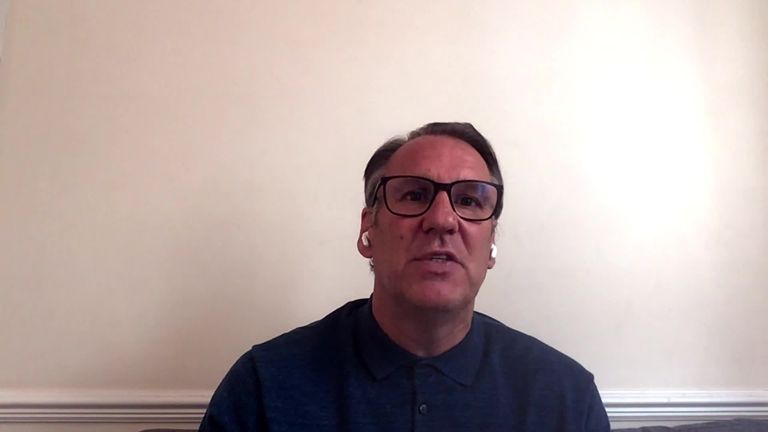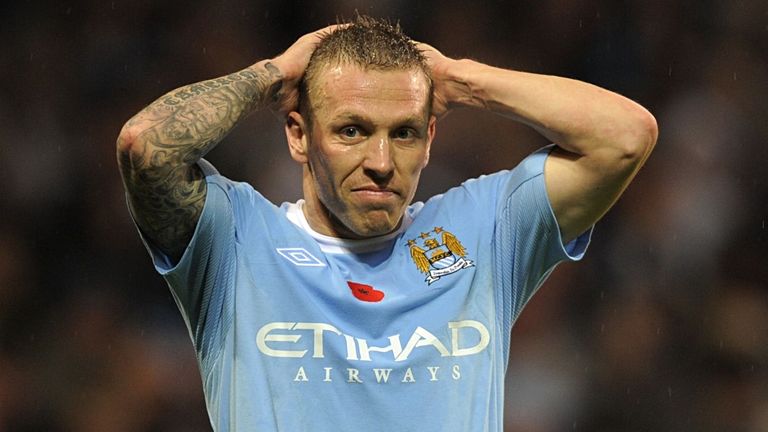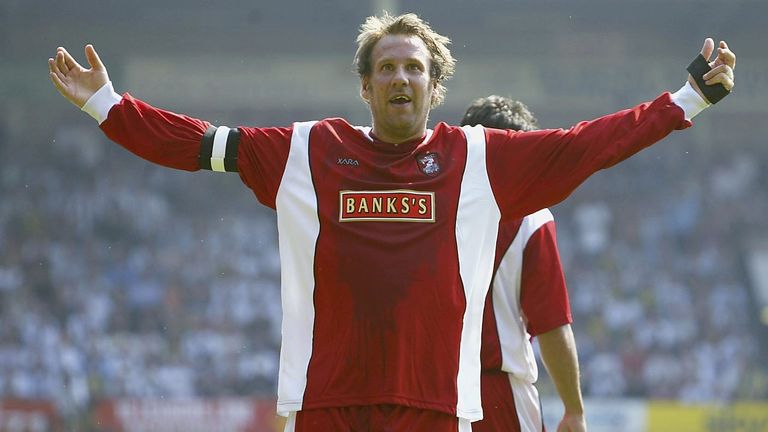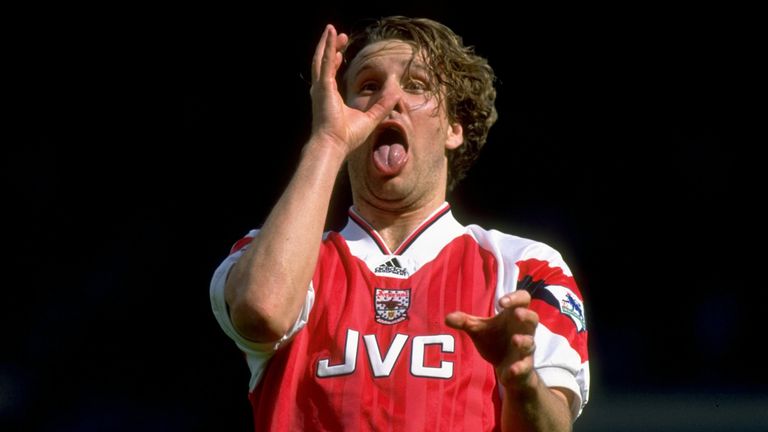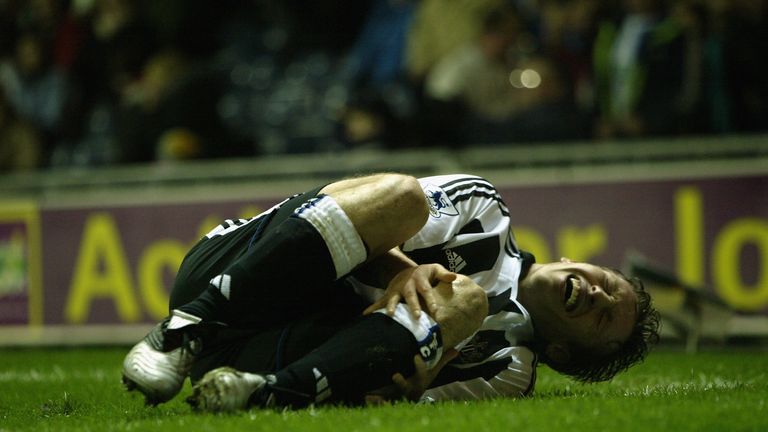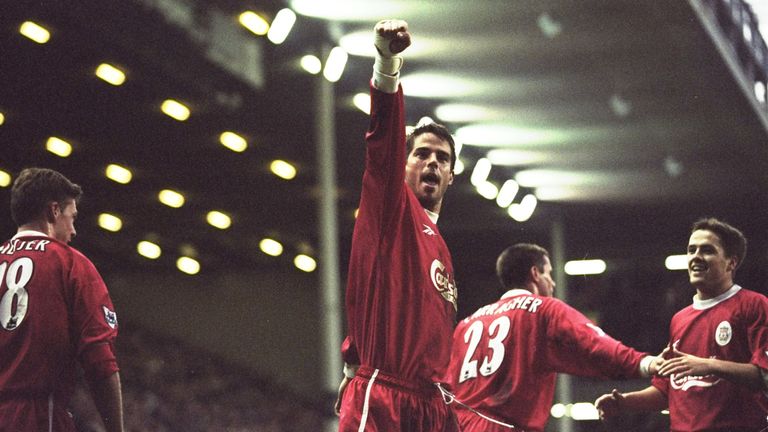Mental Health Awareness Week: Paul Merson's tools for coping
"If someone was struggling, and they went and got help, it would put 30 per cent on their game"
Thursday 11 August 2022 10:39, UK
As part of Mental Health Awareness Week, Paul Merson opens up about his issues with depression and addiction, and offers some tools for coping.
Speaking on Monday's The Football Show, Merson reacted to Craig Bellamy's admission in this week's Off Script that he had been battling depression for several years.
Sky Sports pundit Merson, who has long been open about his own problems, recalled his most recent battle in 2019, insisting that honesty is the most vital tool for recovery.
Hosted by the Mental Health Foundation, Mental Health Awareness Week takes place from May 18-24, 2020. Find out more here.
If you are affected by issues related to mental wellbeing or want to talk, please contact the Samaritans on the free helpline 116 123, or visit the website.
'You have to do it for yourself'
"I'd had enough, enough of living the life I was living. I went into treatment twice before, once the FA sent me in 1993/94, and I had to go, and then I went with Walsall, and it was like I was being forced to go, it wasn't me. Then one day, I was walking home, January 2019, from the British Legion on a Sunday evening, it must have been 11pm, and I thought: 'I've had enough of feeling like this, every day of my life.'
"I rang up AA the next day, and since then I haven't had a drink, thank God. I'd just had enough, it's not a way of living, feeling like that every day of your life. My life now compared to 16 months ago is chalk and cheese. I still have bad days, of course I do, that's life. But I can cope with them now, I have the tools where I can ring people, and I know that it will pass.
"When I was bad, I didn't see any light, and the thoughts that went through my head were scary. You have to do it for yourself, not just your wife or your kids, even though you want to. It doesn't work like that, because if you have an argument, the next thing you think is: 'Ah, I've had enough, I'm only doing it for you,' and the next thing you know you're going out to find a drink, that destructive behaviour you were doing in the first place. It has to be you that wants it.
"I went to AA, which was a major help for me. I went before, but I was going through the motions. This time I went open-hearted and listened."
'Work on yourself... it's insecurity and ego'
"The tools are: you start working on yourself, assessing why you want to drink, why you want to gamble. It's insecurity and ego. I don't have drink indoors. If I have an argument, a stressful day, I don't just go to the cupboard for a drink. I'd have to go to off licence, which is five or 10 minutes away, and by the time I have that five or 10 minutes of open space, then I'm alright. They are the kind of tools I'm talking about.
"I never worry what people think about me anymore. Just go out and say what you need to say. People worry about people so much. This is life. This is your life. You have to come out and look after yourself and say: 'I need help,' and don't be embarrassed. Never worry about what people think. That's what drove me to drinking a lot of time, worrying about what people thought of me."
'Help would improve your game by 30 per cent'
"I don't think dressing rooms are like they were when we played. But the worry is now with players is that people think: 'Oh, they're on £100,000-a-week, why should they be like that?' It doesn't work like that, it's nothing to do with that. It's an illness.
"These players now, if I was there agent of whatever, I'd try to get them as much help as I can, because this career is very short, and goes very quickly, you want to enjoy every minute of it.
"If someone was struggling, and they went and got help, it would put 30 per cent on their game, they would become a better player by 30 per cent."
Souness: I'd have treated Bellamy differently
After listening to Bellamy's admission, his former Newcastle manager Graeme Souness admitted he would have treated the Welshman differently as a player, but realises opening up about issues in such a hostile environment would have been difficult...
"Of course my attitude would have been different. In my day, if someone owned up to being vulnerable with mental health issues, they would have got after them, given them a difficult time in dressing rooms, and the player himself would have been reluctant to open their mouth.
"Craig was forever wanting, in his words, to go to the next level. He wanted to be the best, and he was fabulous, a handful for anyone to play against.
"I can't deny, he was a very difficult player to manage, but obviously now, after seeing that, would my attitude have been different? Would I have treated him differently? Would I have cut him some leeway? Yes.
"But unfortunately at the time he didn't feel like he was in a position where he could go to anyone at Newcastle and explain his feelings, which is sad."
Redknapp: An incredibly tough time
Also speaking on The Football Show, Sky Sports' Jamie Redknapp said Bellamy's interview resonated with him greatly, and recalled how his own injury issues led to issues during his playing career. Like many, however, Redknapp admits he did not want to openly admit his struggles through fear of seeming weak...
"Absolutely that resonated with me. The hardest thing in the world as a footballer is not doing what you love.
"The amount of heartache you go through when all your team-mates are going out to train, you're going to the gym, you're maybe out for six months, there is no light at the end of the tunnel, and people are questioning you. That for me was the hardest thing.
"At Liverpool I'd get nobody to talk to, nobody I could talk to in terms of the staff. It was like the tears of a clown to a certain extent; you'd try your best and laugh at it. Even on A League Of Their Own people joke about me being injured and I laugh about it, but inside it certainly hurts sometimes, because all I wanted to do was play football, be out there doing what I loved.
"There were times when I was a young man at Liverpool and I'd go to bed at night, and didn't want to go to training and show your face, it was an incredibly tough time.
"Did I see it at the time as a mental health issue? No, because it was never discussed. I never wanted to show a sign of weakness to people. I didn't want to show I wasn't strong enough mentally to deal with it."
Hosted by the Mental Health Foundation, Mental Health Awareness Week takes place from May 18-24 2020. Find out more here.
If you are affected by issues related to mental wellbeing or want to talk, please contact the Samaritans on the free helpline 116 123, or visit the website.
